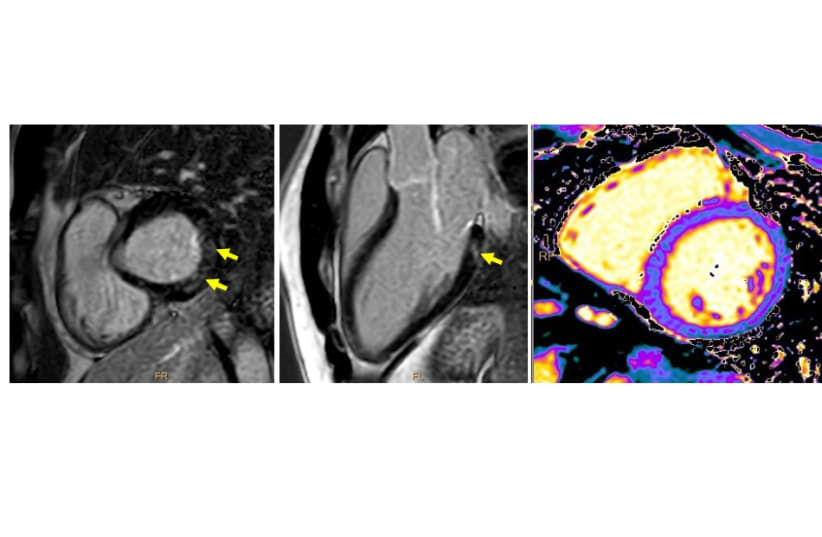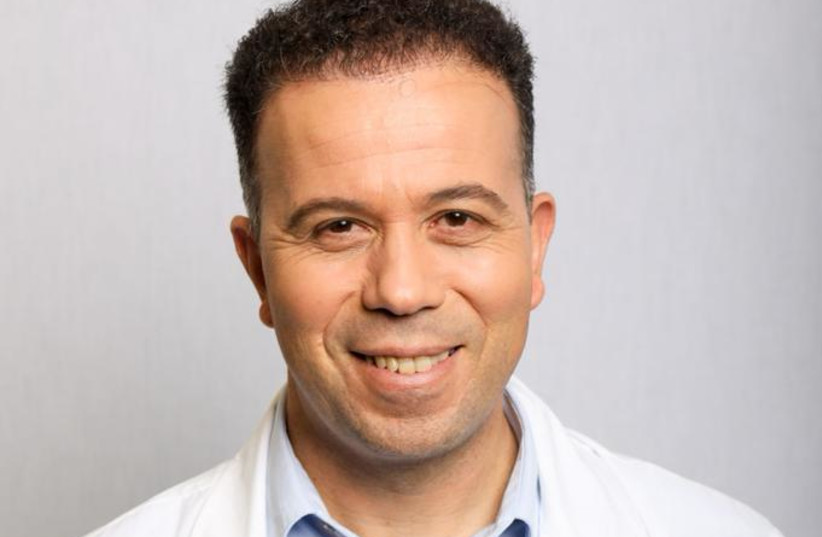The damage caused to the heart muscle in rare occurrences of myocarditis after coronavirus vaccination is mild and unlikely to affect patients’ long-term health, according to a new study published by Rabin Medical Center doctors and scientists.
The study, the largest of its kind to date, examined 15 patients between the ages of 17 and 76 who developed heart inflammation after their first or second jab, using advanced magnetic resonance imaging (MRI) technologies that allow a very high degree of accuracy to diagnose the level of myocardial injury.
MRI is considered the gold standard for the evaluation of heart function, according to the lead researcher, the head of the Department of Cardiovascular Imaging at Rabin, Dr. Ashraf Hamdan. He said the technology allows for a very high level of accuracy.
“This is the first and largest study in the world to look at the issue using MRI,” Hamdan said. “Any other studies are smaller and include only as many as five to seven patients.”
Patients who had been diagnosed with myocarditis were examined within a period of 42 days after their first or second shot.
The results of the study showed that the extent of the damage to the heart muscle is very mild (only around a median of 2% of the myocardial mass) and in most cases heart function remained normal.
The most common complaint was chest pain, the research showed, and all patients were eventually discharged from the hospital.
A study published last month by the Cardiology Department at the hospital with Clalit Research Institute had already shown that the phenomenon was rare. Among 2.5 million Israelis who received the vaccine, only 54 experienced heart inflammation.
According to Hamdan, myocarditis appears to be an immediate auto-immune reaction and nothing more.
He said given the mild damage and the fact that despite some inflammation the heart appeared to be functioning normally, “we expect these patients will have no problem in the future.”

